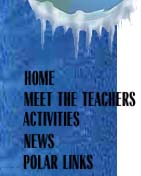
|
TEA Program Regional WorkshopSuggestions for Proposing FacilitatorsSpecial Thanks to TEAs Sandra Kolb and Juanita Ryan for their contributions to these guidelines!Back to Main PageThe TEA management team has compiled the following information to support proposing facilitators as they plan a workshop. I. “Establishing a ‘theme’ facilitates the organization of a workshop. Speakers, hands-on sessions, resource materials, and tours can all be developed around the central theme.” “An interesting venue, conducive to a facility tour, is the ideal place to hold a workshop. Local museums, a NASA Center, a local aero/astro company, airport, or local university are excellent locations. More often than not, the facility will assist in the promotion of the workshop and will often volunteer to provide some support services such as photocopying, volunteers, and/or refreshments.” “Teachers enjoy facility tours! Whenever possible (and depending on the workshop site) even a short visit to a university lab, an aero/astro fabrication area, or a flight line is appreciated.” From: “A Guide for Organizing and Conducting a Teacher Workshop” II. Instruction is improved when professional development uses various types of professional learning processes based on its intended outcomes and employs the types of instruction it recommends to teachers.” From “Designing Powerful Professional development for Teachers and Principals” Also, specific information about parcticular staff development models or programs III. From: “The ‘Never Evers’ of Workshop Facilitation” IV. From: Workshop Planner, Successful workshops Activity I V. From: “What We Learned from Running Regional Workshops” |
